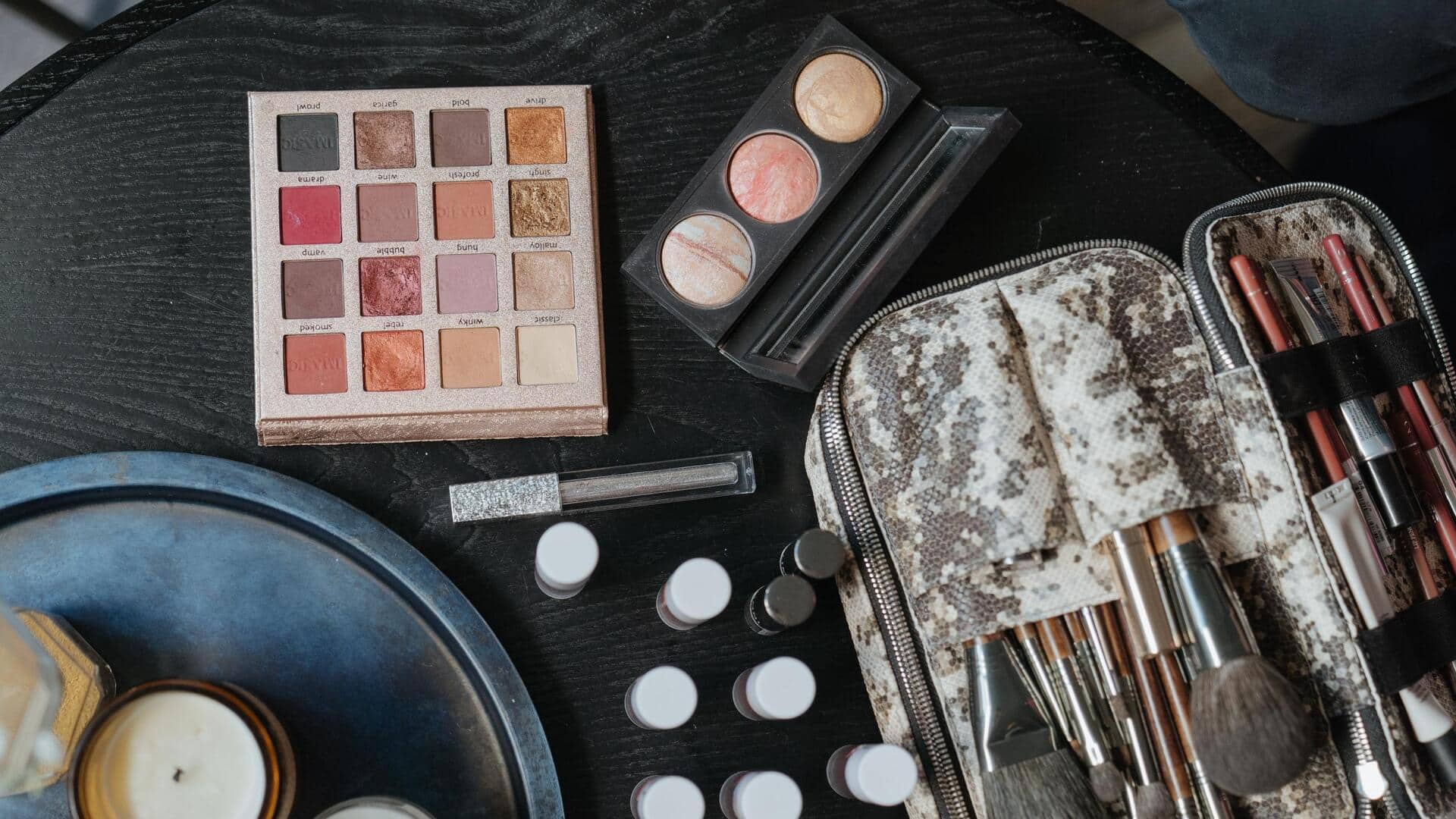
Mastering makeup storage: Tips to ensure product longevity
What's the story
Properly storing makeup and skincare products is essential for maintaining their effectiveness and longevity. We got in touch with Ritika Krit, founder of Kamree, to explore the optimal storage conditions for various cosmetic items and discuss the significance of correct storage. By understanding how to preserve these products, you can ensure they deliver the best results while avoiding potential skin issues and product spoilage.
Temperature
Ideal temperature for storing cosmetics
The ideal temperature for storing makeup products like lipstick, kajal, and eyeliners is 10-20 degrees Celsius. "People living in warmer climatic zones and humid areas should store makeup products in cool and dry places like a refrigerator or a cupboard away from direct sunlight and heat sources," suggests Krit. She advises sealing makeup in airtight containers or Ziplock bags to shield it from moisture.
Ineffective
What happens if you do not store them well?
Don't underestimate the impact of storage temperature on your cosmetics. Improper storage doesn't just affect the product's usability, but it can also compromise product effectiveness or safety. "An example of improper storage leading to spoilage is leaving a sunscreen bottle in a hot car. The heat can cause the active ingredients to break down, making the sunscreen ineffective," explains Krit.
Oxidation
Store products with active ingredients in cool, dark places
Skincare products with vitamin C and other active ingredients should be stored in a cool, dark, and dry place to prevent oxidation. Krit recommends storing them in a refrigerator as the low temperature can slow down the oxidation process. Serums that come in clear glass bottles with a dropper dispenser should never be left in well-lit rooms, it can encourage oxidation.
Signs
How to tell if the product has gone bad
"Signs of oxidation in skincare products include a change in color, texture, scent, and skin irritation upon application. If a product smells rancid or off, it's likely that it has gone bad and should be discarded," explains Krit. Spoiled products may also cause allergic reactions. "This emphasizes how important it is to look for indications of spoilage before using any skincare products," highlights Krit.
Packaging
Focus on the product packaging
Krit advises seeking airtight, opaque packaging to shield from air, light, and moisture. Glass bottles should feature pump/dropper dispensers for minimal air exposure. Avoid jars since they invite contamination from fingers and air. Pump bottles/tubes are safe and hygienic while single-use sachets/tubes are travel-friendly and hygienic. High-end skincare brands often employ airless pumps to prolong shelf life, ensuring hygienic dispensing and shielding against oxidation.